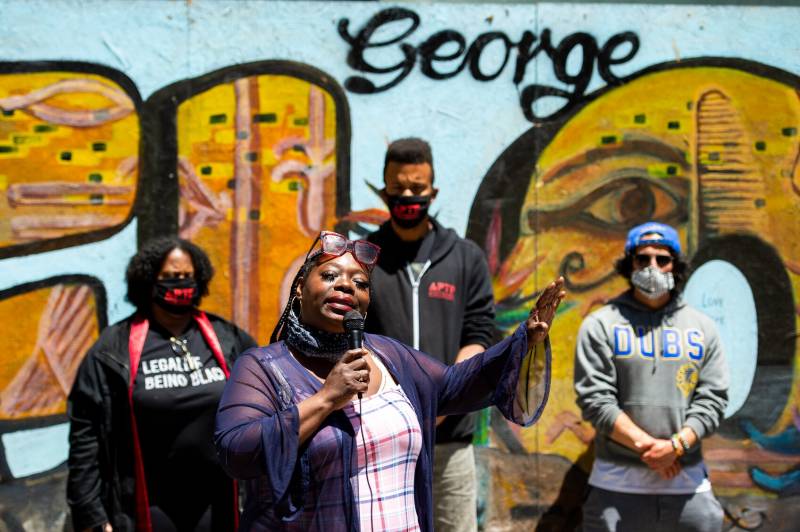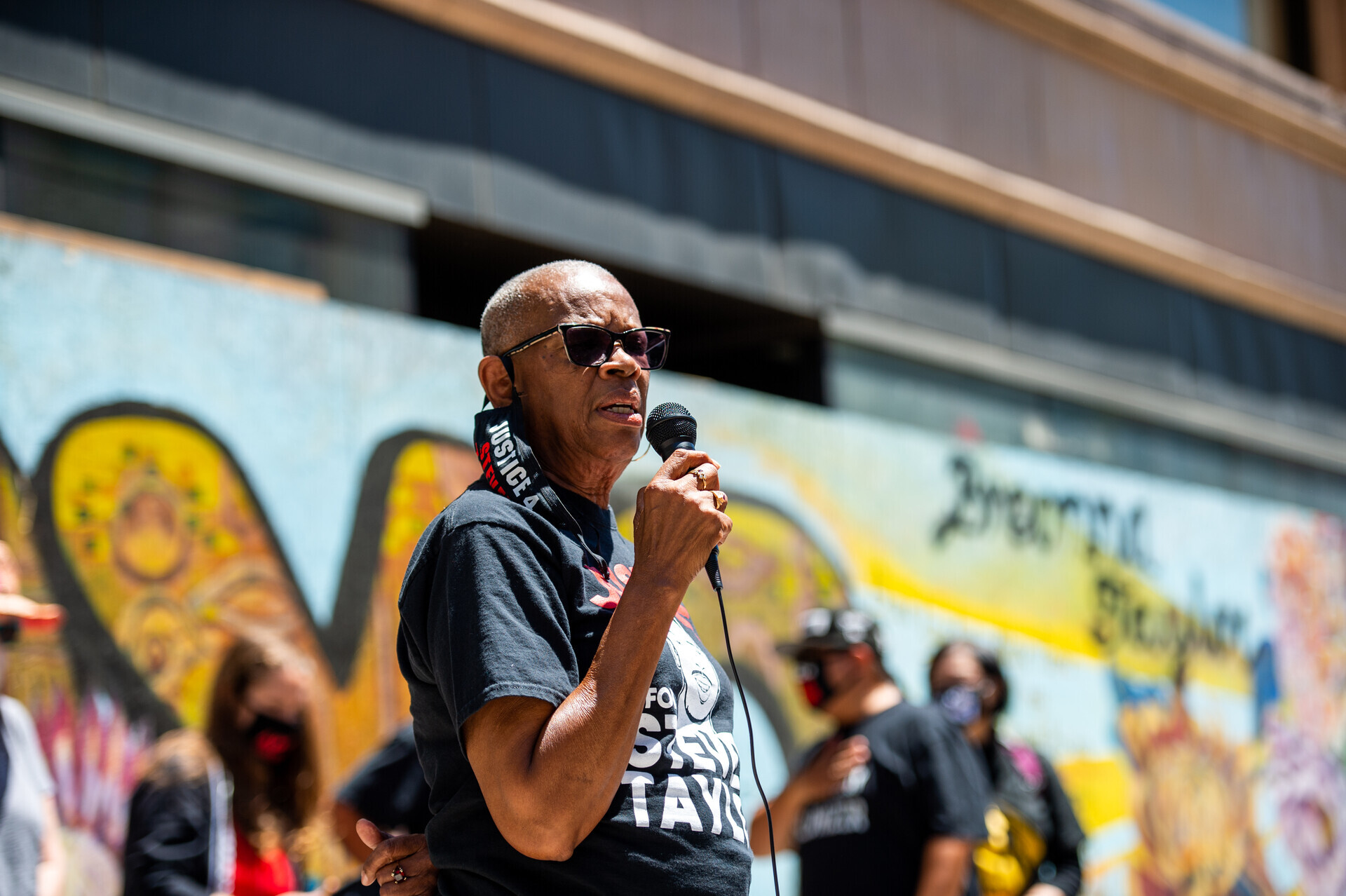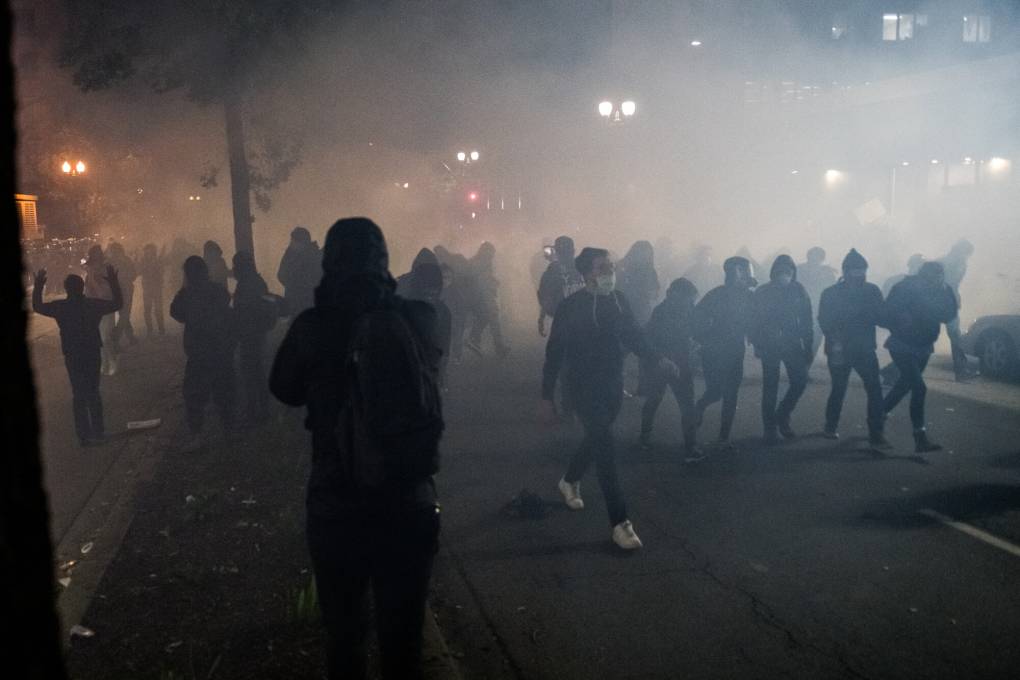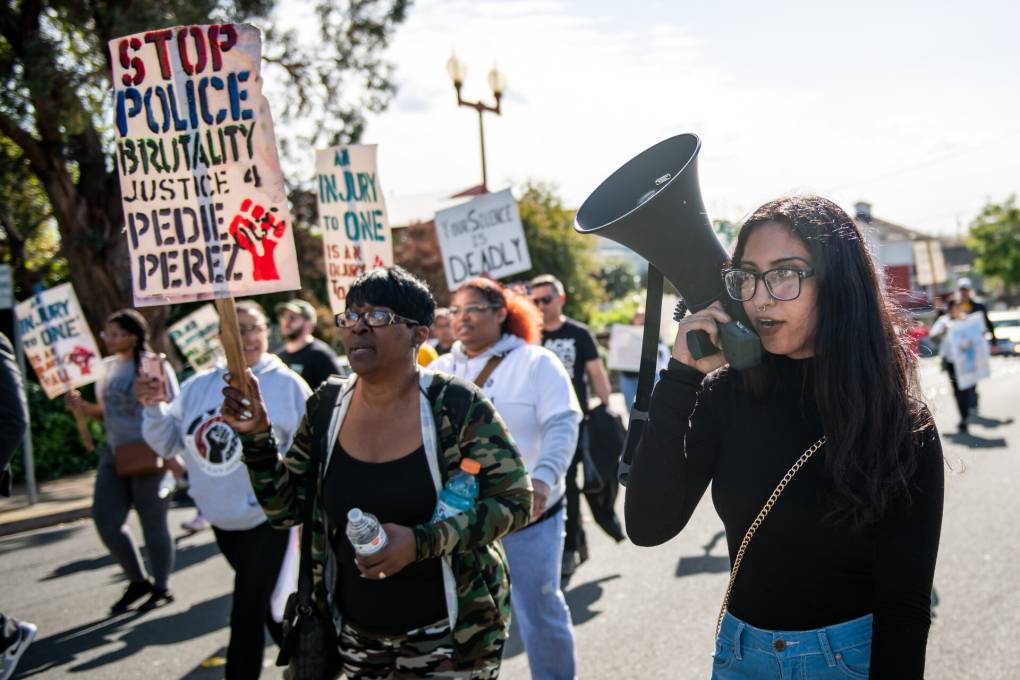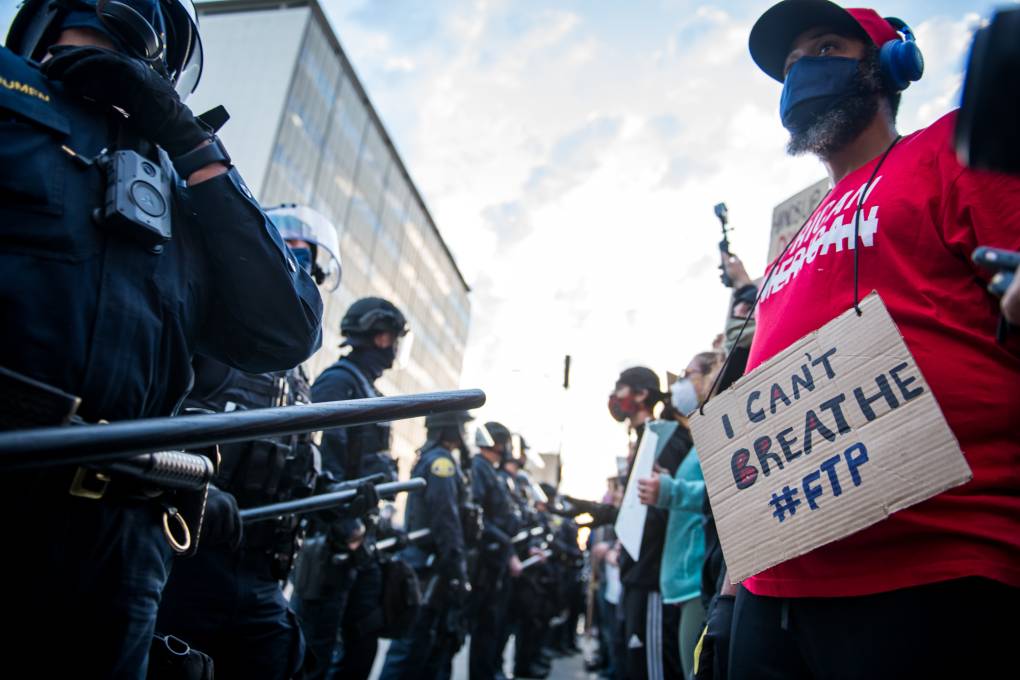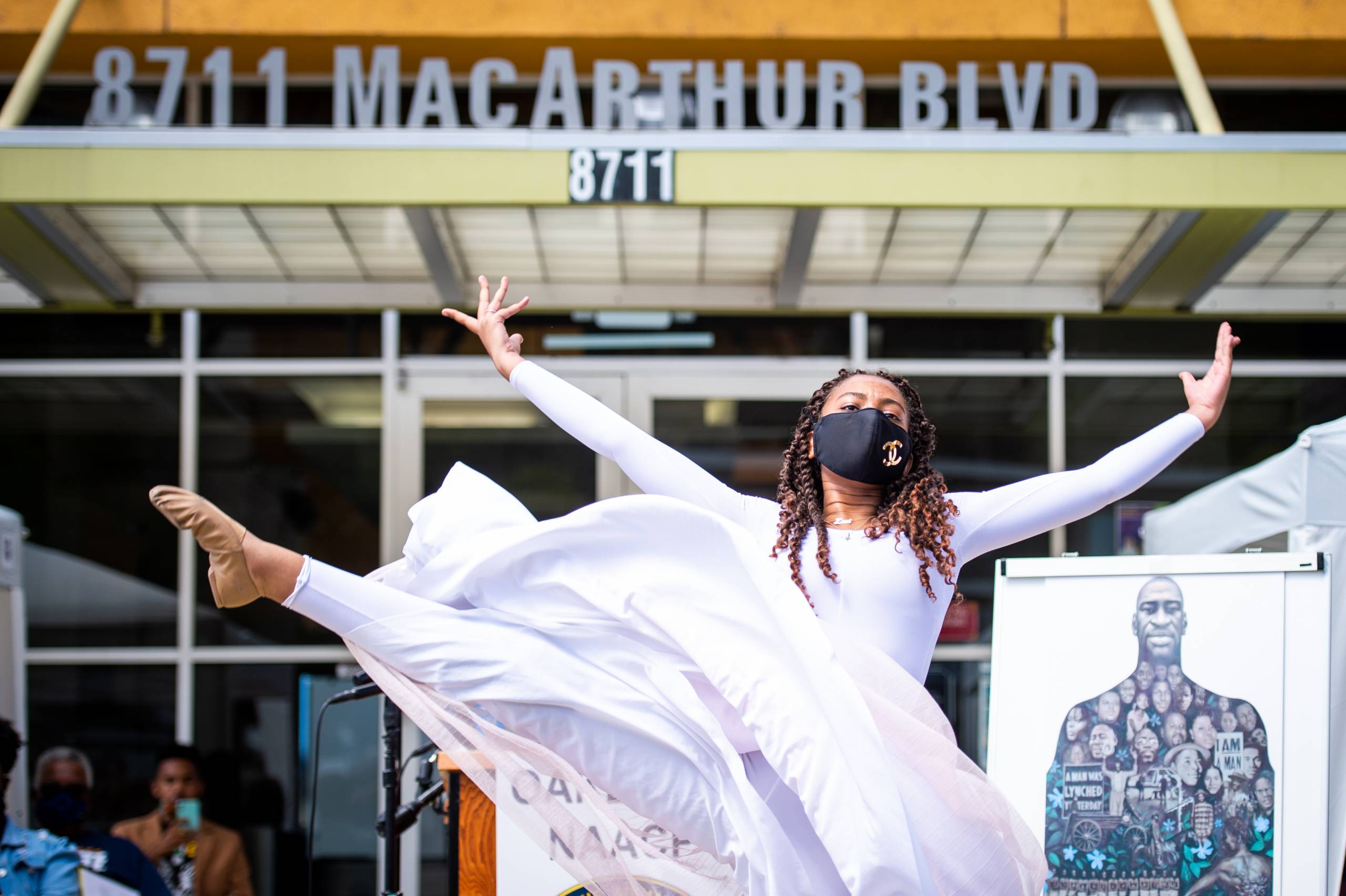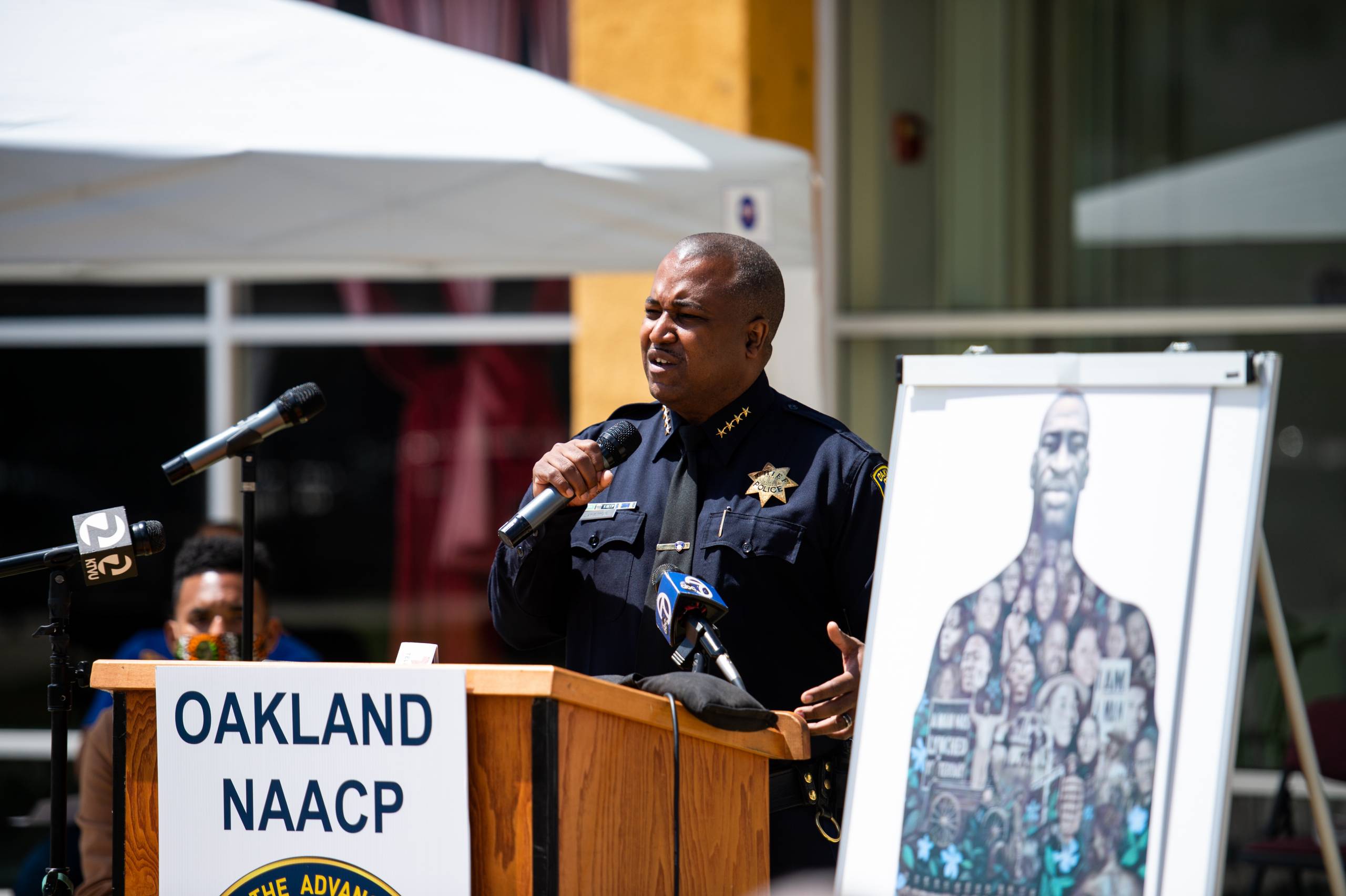George Floyd’s presence can still be felt in downtown Oakland, where murals bearing his likeness remain, along with numerous signs saying his name in large yellow letters, covering some business windows along Broadway.
Exactly one year ago, Floyd went out to buy cigarettes at a grocery store in Minneapolis. A store employee called the police, thinking Floyd had used counterfeit currency. The officers confronted Floyd and one of them, Derek Chauvin, knelt on Floyd’s neck for nearly nine minutes even as the 46-year-old Black man pleaded that he couldn’t breathe.
Floyd’s murder, for which Chauvin was convicted in April, sparked hundreds of protests across the country led by organizers who demanded accountability for Floyd’s death, an end to police brutality and major structural reform in the nation’s policing systems.
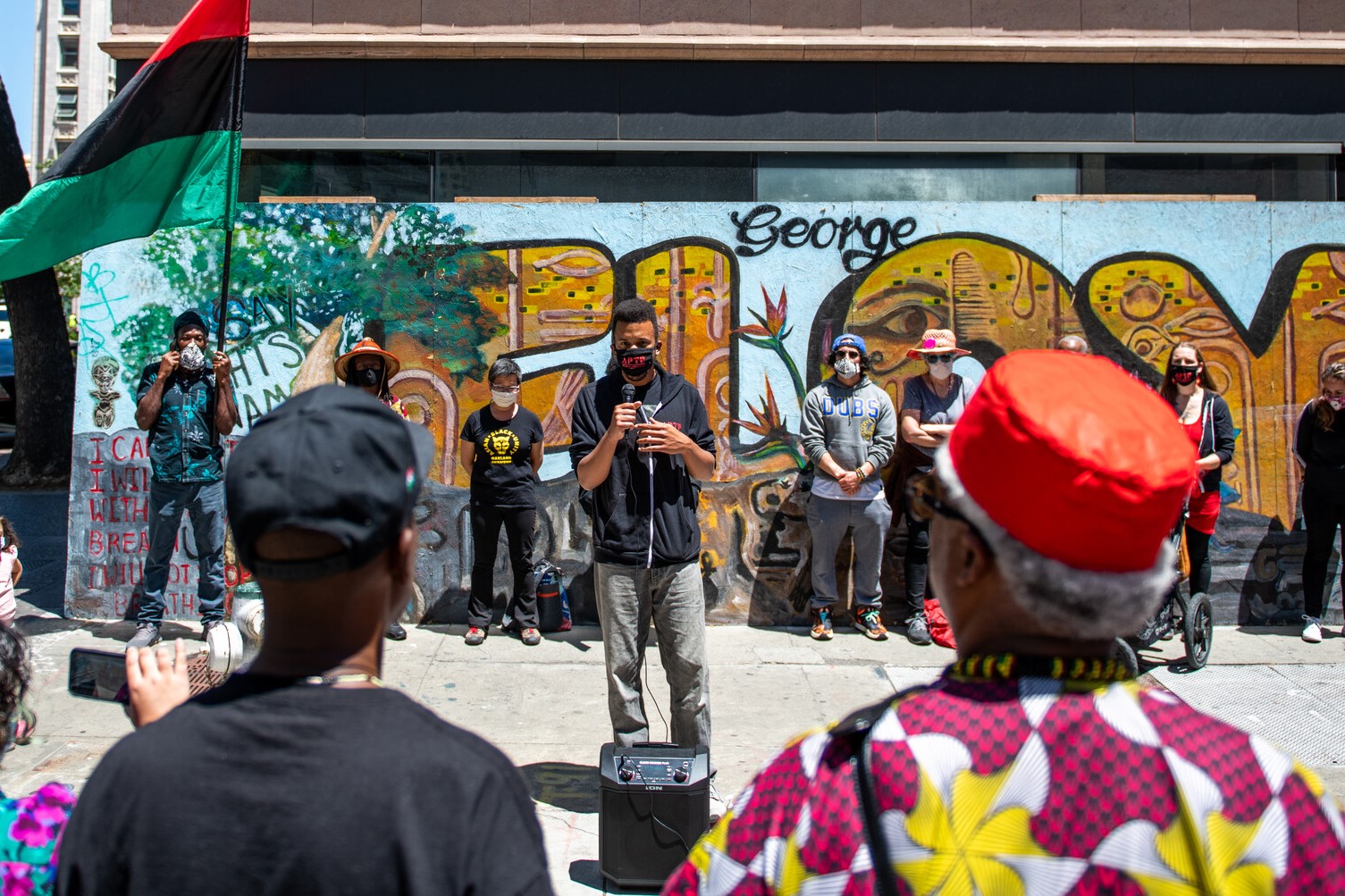
Not too far from Frank Ogawa/Oscar Grant Plaza in downtown Oakland – the site of dozens of such demonstrations – organizers from the Anti Police-Terror Project (APTP) and the Defund Police Coalition on Tuesday held a press conference to honor George Floyd on the anniversary of his murder. Despite pressure put on city officials and a promise to reinvest dollars spent on policing into communities, advocates said change still hasn’t come.
“At the height of the George Floyd uprising, there was an intense political pressure put on the City Council and the mayor,” said James Burch, APTP policy director. “They committed to a pathway to reimagine public safety, and [to] reinvest 50% of the dollars spent on policing … That’s where we were last summer. And between then and now, some members of city government have retreated and retrenched themselves into the status quo.”
